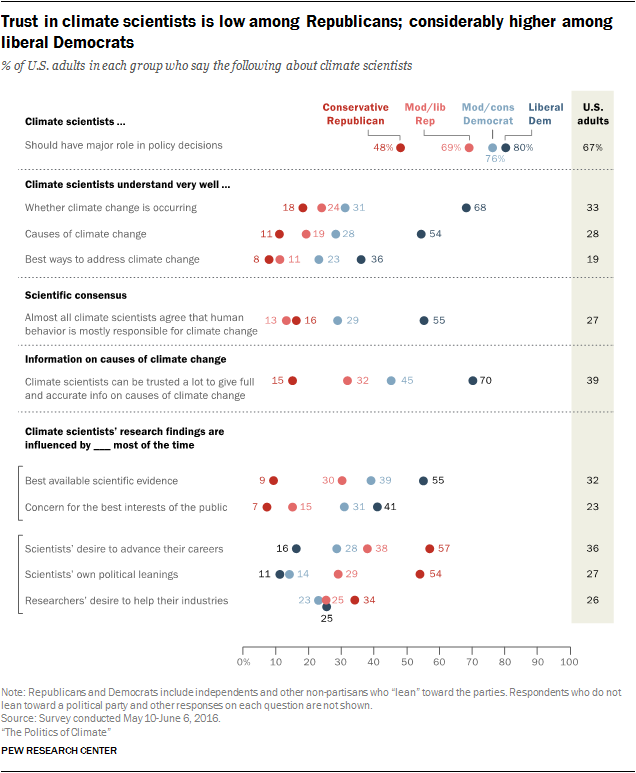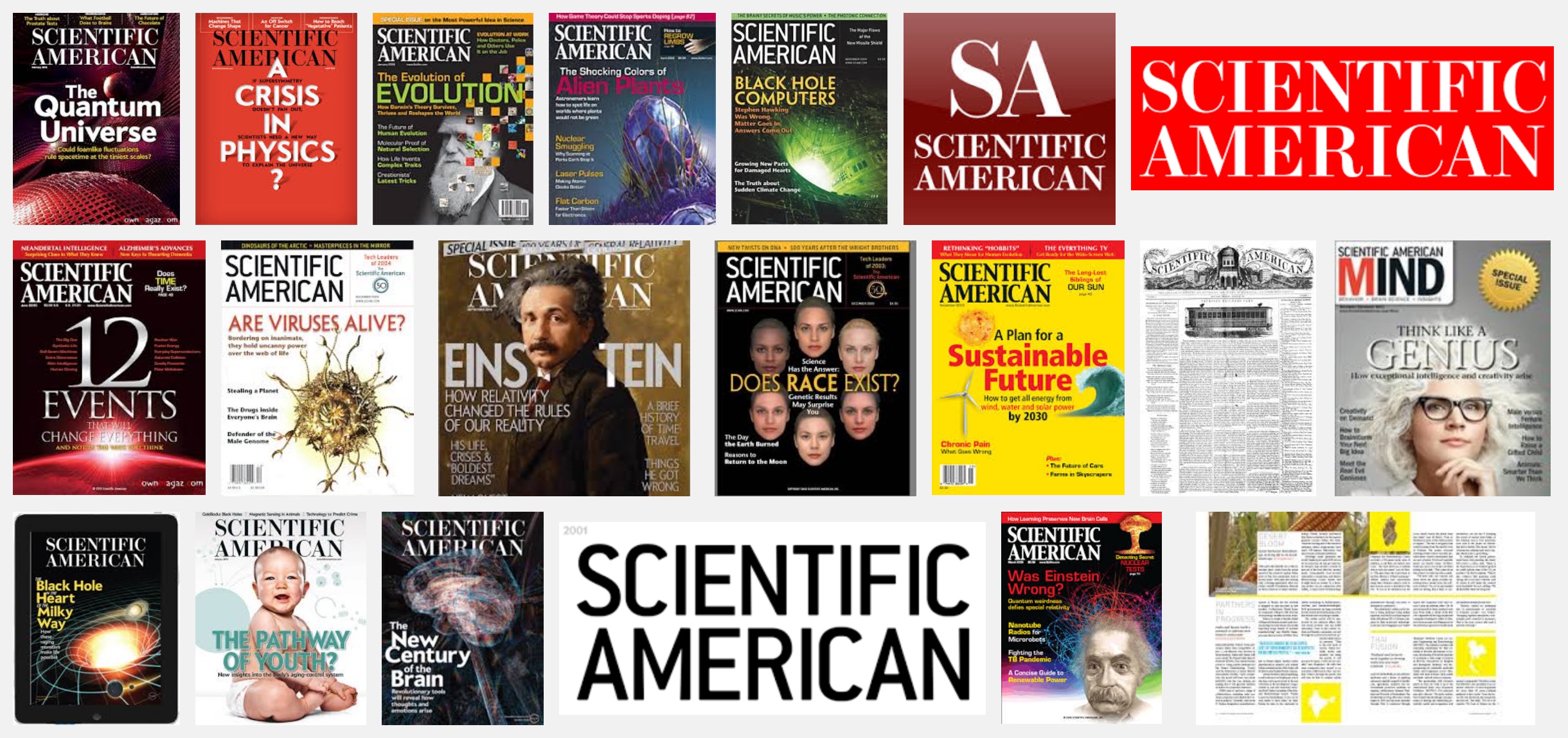
If you trust a climate scientist you are more likely to be a liberal Democrat. And, if you tend to be highly skeptical of climate science, scientific consensus, climate change causes, and even ways to address climate change, then you’re more likely to be a Republican.
A fascinating study from the Pew Research Center sheds more light on the great, polarized divide between the left and the right.
For instance, 70 percent of liberal Democrats “trust climate scientists’ a lot to give full and accurate information about the causes of climate change, compared with just 15% of conservative Republicans.” Further, just over half (54 percent) of liberal Democrats “say climate scientists’ understand the causes of climate change very well”, which compares with only 11 percent of conservative Republicans.
From Pew Research Center:
Political fissures on climate issues extend far beyond beliefs about whether climate change is occurring and whether humans are playing a role, according to a new, in-depth survey by Pew Research Center. These divisions reach across every dimension of the climate debate, down to people’s basic trust in the motivations that drive climate scientists to conduct their research.
Specifically, the survey finds wide political divides in views of the potential for devastation to the Earth’s ecosystems and what might be done to address any climate impacts. There are also major divides in the way partisans interpret the current scientific discussion over climate, with the political left and right having vastly divergent perceptions of modern scientific consensus, differing levels of trust in the information they get from professional researchers, and different views as to whether it is the quest for knowledge or the quest for professional advancement that drives climate scientists in their work.
…
This survey extensively explores how peoples’ divergent views over climate issues tie with people’s views about climate scientists and their work. Democrats are especially likely to see scientists and their research in a positive light. Republicans are considerably more skeptical of climate scientists’ information, understanding and research findings on climate matters.
Read the entire article here.
Infographic: Trust in climate science is low among Republicans; considerably higher among liberal Democrats. Courtesy: Pew Research Center.


